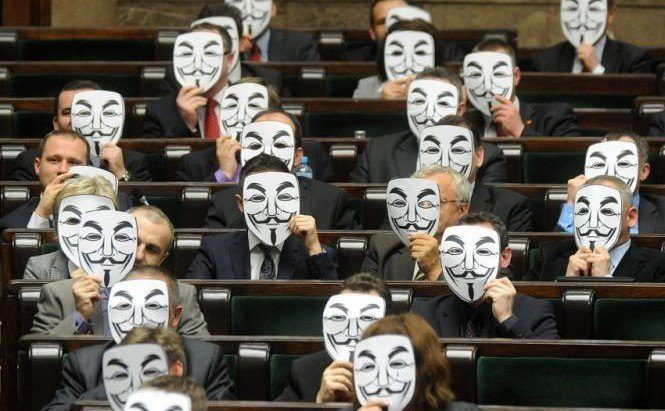 ACTA: The New Danger to the Web Freedom?
ACTA: The New Danger to the Web Freedom?
The Web-community has just celebrated its hard-earned victory over the SOPA and PIPA bills in the United States, but one more copyright protection project has again got in the focus of public attention.
What's all the fuss about?
Now the issue at hand is the so-called ACTA agreement, which was signed by the 22 EU members in Tokyo. The Anti-Counterfeiting Trade Agreement (the document's official title) is intended to serve as the legal basis of fighting against counterfeiting. Nevertheless, the ACTA framework is not limited to the pure counterfeiting or trade of generic medicines or physical goods, but also includes measures against copyright infringement on the Internet. The other signatories were the United States, Canada, Australia, Japan, and South Korea and several other countries.
Each time the phrase 'copyright infringement' comes to the fore, the wide public outrage is as good as guaranteed. Perhaps that's why the negotiations around the new agreement were marked by secrecy: the news about the European Union signing the document was a big surprise for the general public. In fact, signing the agreement would have passed largely unobserved if not for the recent massive Internet black-out, aimed to protest against the notorious SOPA and PIPA bills.
The draught text was already leaked on the Web once in 2008 by the Wikilieaks.org whistleblower: following that leak, David Fewer, staff counsel at the University of Ottawa's Canadian Internet Policy and Public Interest Clinic, requested the document text from some Governmental Agency. It was eventually sent to him by the Canadian Federal authorities; however, the entire text except for the title was blacked out and, therefore, did not provide much information about the bill.
How does it affect me?
Quite predictably, the most debatable points in the new documents concern the delicate copyright protection issues. For example, after the agreement ratification the customs officers will be authorised to examine the contents of any data storage device that can potentially contain copyright infringing materials. In plain terms, if in a couple of years you happen to fly to Europe with a laptop, flash drive, smartphone or an iPod, you may be sure that all these devices will be meticulously examined at the customs (looks like the security checks at the airports will be even longer, doesn't it?).
Moreover, it will be allowed to order the drilling down of your devices ex parte, i.e. in the absence of your lawyer, and take 'other preliminary measures' (without any further clarification of what it stands for). In case the customs officers find something, as they think, infringing someone's copyright, they will have the full right to confiscate or destroy your data carrier. Certainly, it won't matter much if it's just a flash-drive, but what if it's your oh-so-great iPhone or Nokia Lumia?
And that's not all. ACTA also obliges the Internet providers and hosts to actively spy after their users and report the cases of copyright infringement to the authorities. No warrant required. Moreover, copyright infringement will start being regarded as a criminal offense, even if it wasn't that in the member country legislation. To crown it all, there will be created a special ACTA-committee, eligible to issue subsequent agreement amendments without ratifying them by the member states.
So, what are the prospects?
First, the ratification is not through yet. ACTA is a multilateral responsibility agreement, i.e. it has to be signed both by the European Union and all its member states. This must happen till the end of the year. Taking into account, that there has been almost no protests against the agreement except in Poland (where they have led to nothing, actually), the chances of ACTA coming into force equal almost 100%.
Sad, but true.
One more, black-out, ladies and gentlemen?





I like the picture you've drawn: a customs officer with serious face is scanning my PC and destroying a photo with watermark that I downloaded illegally. Epic fail